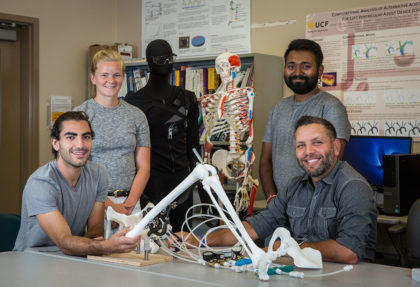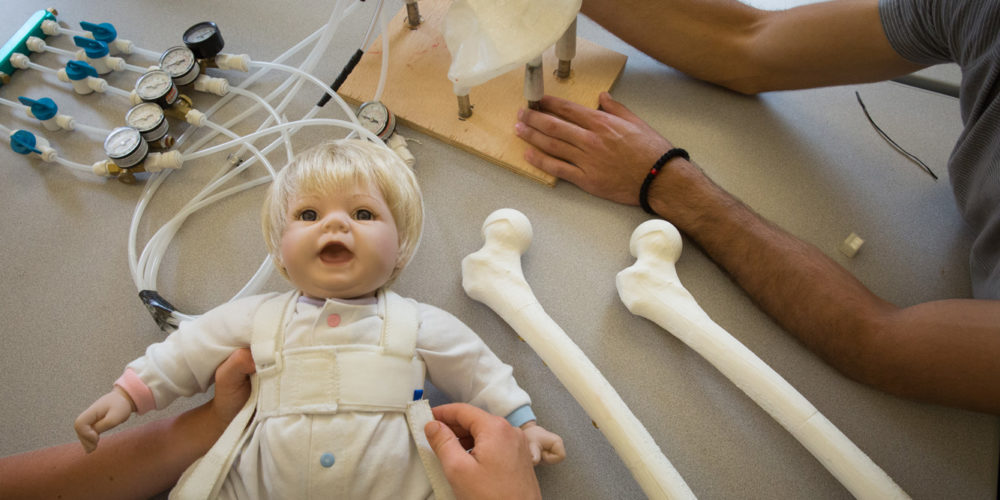Bioengineering researchers at Embry-Riddle aim to improve hip dysplasia treatment in infants. They’re making strides toward that goal, thanks to funding from the Paul B. Hunter and Constance D. Hunter Charitable Foundation and International Hip Dysplasia Institute (IHDI).
“The International Hip Dysplasia Institute supports the research at Embry-Riddle because of its recognized expertise in engineering innovation,” says Dr. Charles Price, M.D., director of IHDI in Orlando, Fla.
Common in infants, hip dysplasia can range from mild instability that resolves spontaneously, to complete dislocation that may need surgery, says Price. Different braces and harnesses can relocate hips back into the socket, but Embry-Riddle is the first to conduct a biomechanical analysis of bracing techniques, he says.

“This project required a new way of looking at a medical problem. The engineers at Embry-Riddle are very innovative in this type of cross-disciplinary collaboration,” says Price.
Team Effort
Mechanical engineering faculty members at Embry-Riddle’s Daytona Beach Campus Eduardo Divo and Victor Huayamave and Alain Kassab from the University of Central Florida’s (UCF) College of Engineering are working together on the project.
“This project required a new way of looking at a medical problem. The engineers at Embry-Riddle are very innovative in this type of cross-disciplinary collaboration.”
“The funding has helped us maintain and enhance our collaboration with UCF and the IHDI,” says Divo, who is the Mechanical Engineering Ph.D. program coordinator and associate chair for the department.
The key to the project’s success is the work of mechanical engineering graduate student Anthony Khoury (’16, DB). Grant funds from IHDI are sponsoring his research.
“It is the hope of the Hunter Foundation that supporting this project will both benefit hip dysplasia patients and raise awareness and promote further research for this condition,” says Pam Clifton, director of the Hunter Foundation. The Hunter Foundation was founded in 2004 by longtime Embry-Riddle supporter Constance D. Hunter, who passed away in 2014.
